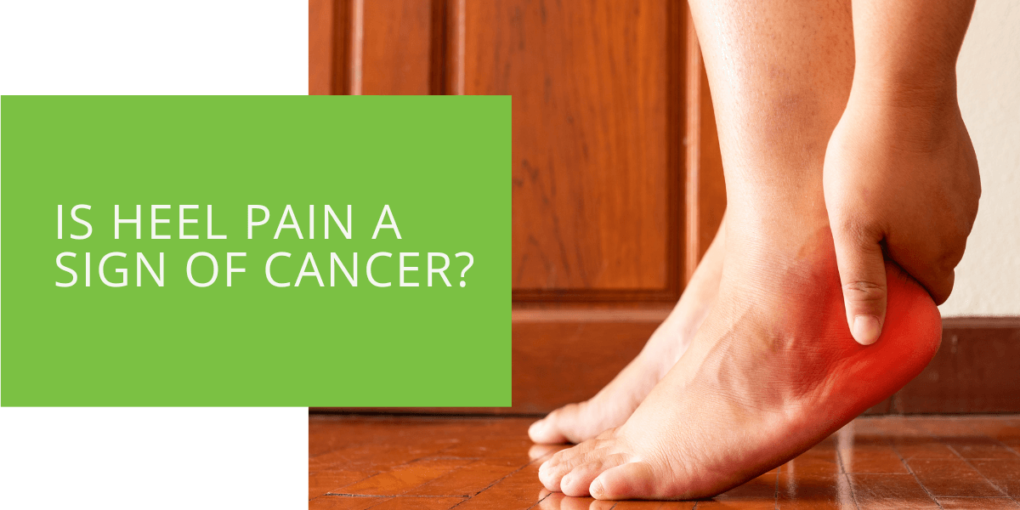Is Heel Pain a Sign of Cancer?
Cancer is a disease that can affect any part of the body and can present itself in a variety of ways. While heel pain is a common complaint, it is not typically associated with cancer. However, it is important to consider all possible causes of any concerning symptoms, including the possibility of cancer. In this article, we will explore whether heel pain could potentially be a sign of cancer and what steps can be taken to identify and address the underlying cause.
Types of Cancer that Can Cause Heel Pain
One type of cancer that can cause heel pain is bone cancer. This type of cancer begins in the cells that make up the bones and can occur in any bone in the body, including the heel. Symptoms of bone cancer may include pain in the affected area that gets worse over time, swelling or tenderness in the affected area, and difficulty moving the affected limb. It is important to note that bone cancer is relatively rare, accounting for only about 1% of all cancers.
Other types of cancer that could potentially spread to the heel and cause pain include breast, prostate, and lung cancer. When cancer spreads, or metastasizes, to a different part of the body, it is known as secondary, or metastatic, cancer. Symptoms of metastatic cancer may vary depending on the location of the cancer and the type of cancer, but can include pain, swelling, and changes in the appearance of the affected area.
Imaging tests, such as X-rays, CT scans, and MRIs, can help to identify the cause of heel pain and determine whether it is related to cancer or another condition. It is important to receive an accurate diagnosis in order to determine the most appropriate treatment.

Other Causes of Heel Pain
While cancer is a potential cause of heel pain, there are many other more common causes of heel pain that are not related to cancer. Some of these causes include plantar fasciitis, bursitis, and stress fractures.
Plantar fasciitis is a common cause of heel pain that occurs when the plantar fascia, a band of tissue that runs across the bottom of the foot, becomes strained or inflamed. Symptoms of plantar fasciitis may include pain in the heel or arch of the foot, especially when first getting out of bed in the morning or after prolonged periods of standing.
Bursitis is a condition that occurs when the bursae, small fluid-filled sacs that cushion and protect the joints, become inflamed. Bursitis can occur in the heel and cause pain, especially when walking or standing on the affected foot.
Stress fractures are small cracks in the bone that occur as a result of repetitive or overuse injuries. Stress fractures of the heel bone, or calcaneus, can cause pain, swelling, and difficulty walking.
It is important to receive a proper diagnosis and treatment for these non-cancerous causes of heel pain in order to relieve symptoms and prevent further damage to the foot.

When to Seek Medical Attention for Heel Pain
If you are experiencing persistent or severe heel pain, it is important to seek medical attention, regardless of the potential cause. Your healthcare provider will be able to determine the underlying cause of your heel pain and recommend appropriate treatment.
It is also important to discuss any concerning symptoms or risk factors for cancer with your healthcare provider. Risk factors for cancer may include a family history of cancer, certain inherited genetic mutations, certain lifestyle factors such as tobacco use and excessive alcohol consumption, and certain environmental exposures.
In addition to seeking medical attention for persistent or severe heel pain, it is important to receive timely treatment for any underlying condition, whether cancerous or not. Early detection and treatment can improve the chances of a successful outcome and help to prevent the condition from worsening.

Conclusion
In conclusion, while heel pain is not usually associated with cancer, it is important to consider all possible causes of concerning symptoms and seek medical attention if necessary. Types of cancer that could potentially cause heel pain include bone cancer and cancers that have spread, or metastasized, to the heel. Other, more common causes of heel pain include plantar fasciitis, bursitis, and stress fractures.
It is important to receive an accurate diagnosis and appropriate treatment for any underlying condition in order to relieve symptoms and prevent further damage. If you are experiencing persistent or severe heel pain, it is important to seek medical attention and discuss any concerning symptoms or risk factors for cancer with your healthcare provider.
FAQ
Is heel pain a common symptom of cancer?
Heel pain is not typically a common symptom of cancer. While it is important to consider all possible causes of concerning symptoms, there are many more common causes of heel pain that are not related to cancer.
Can cancer treatment cause heel pain?
Cancer treatment, such as chemotherapy or radiation therapy, can sometimes cause side effects that may include pain. However, these side effects are usually temporary and can be managed with medication and other supportive measures. It is important to discuss any concerns about side effects with your healthcare provider.
Can a patient with cancer exercise or be active while undergoing treatment?
It is generally recommended that patients with cancer stay as active as possible during treatment, as long as it is safe and comfortable to do so. Exercise and physical activity can help to improve overall physical and mental well-being, and may also help to reduce the risk of certain side effects of treatment. It is important to discuss any exercise and activity plans with your healthcare provider, as there may be certain activities that should be avoided depending on the type and stage of cancer and the specific treatment being received.
Can a tumor in the ankle cause heel pain?
A tumor in the ankle could potentially cause heel pain, depending on its location and size. It is important to receive an accurate diagnosis and appropriate treatment for any underlying condition causing heel pain, including cancer.
How does a doctor diagnose the cause of heel pain?
To diagnose the cause of heel pain, a doctor may perform a physical examination and ask about the patient's medical history and symptoms. They may also recommend imaging tests, such as X-rays, CT scans, or MRIs, to help identify the cause of the pain. Based on the results of these tests and the patient's overall health, the doctor can determine the most appropriate course of treatment.
Can medication or chemotherapy be used to treat heel pain caused by cancer?
Medication or chemotherapy may be used to treat cancer that is causing heel pain, depending on the specific type and stage of cancer and the patient's overall health. These treatments may help to shrink or slow the growth of the cancer and may be used alone or in combination with other treatments, such as surgery or radiation therapy.
What is the success rate of cancer treatment for heel pain?
The success rate of cancer treatment for heel pain varies depending on the specific type and stage of cancer, the patient's overall health, and the treatment being received. It is important to discuss the potential outcomes and success rates of treatment with your healthcare provider.
Are there any side effects of cancer treatment drugs that can cause heel pain?
Certain cancer treatment drugs can cause side effects, such as pain. It is important to discuss any concerns about side effects with your healthcare provider, who can help to manage them with medication and other supportive measures.

